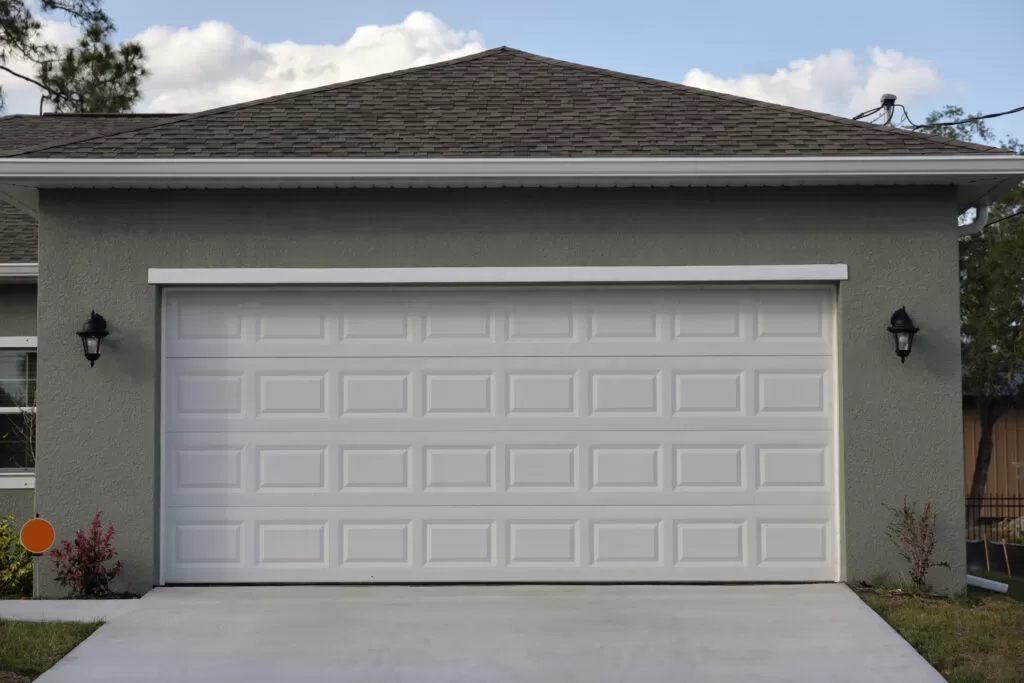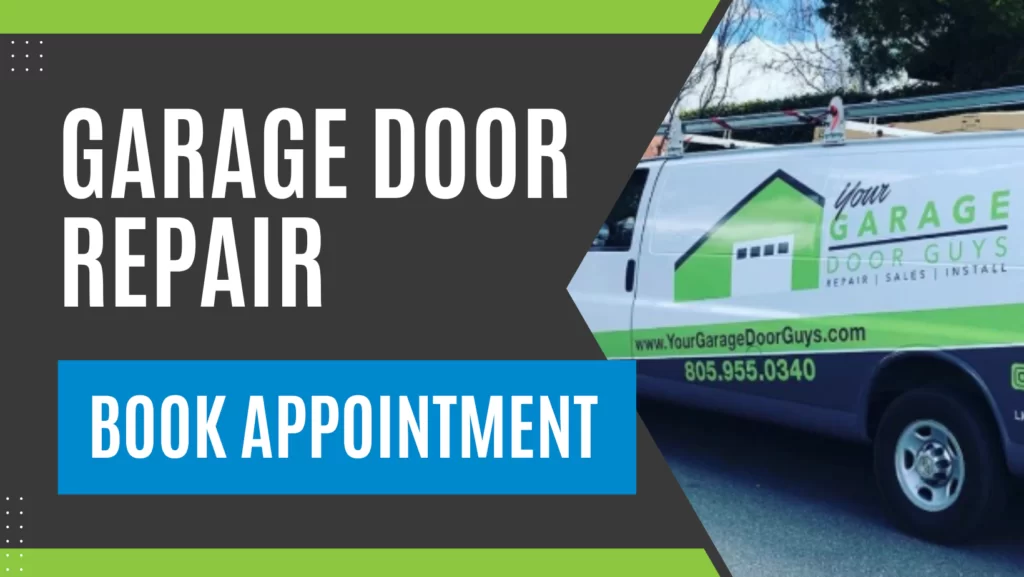A loud garage door can be more than just an annoyance—it often signals worn-out parts or poor maintenance. Common culprits include loose hardware, lack of lubrication, or damaged rollers. Addressing these issues early can prevent costly repairs and restore quiet, smooth operation to your garage door system.
A loud garage door can be more than just a nuisance—it might be a warning sign that something is wrong. The sudden screeches, grinding, or rattles can disrupt your peace and even hint at underlying issues that need attention.
This article explores why your garage door is making so much noise and what you can do about it.
Top Reasons You Have a Loud Garage Door
A loud garage door doesn’t just wake the neighbors—it often signals worn-out components or poor maintenance. Garage doors are complex systems with multiple moving parts, and any imbalance or wear can increase noise levels significantly. Regular use leads to gradual wear and tear, which often goes unnoticed until the noise becomes unbearable.
From loose bolts to misaligned tracks, the causes vary but are typically easy to identify once you know what to look for. Ignoring the issue can make minor problems worse, leading to expensive repairs or safety hazards.
Here’s a breakdown of the most common reasons for a loud garage door:
Worn-Out Rollers
Rollers help your garage door glide smoothly along its tracks. Over time, especially with metal rollers, they can become worn or rusted, leading to a grinding or squeaking sound. This wear and tear is a common reason for a loud garage door, especially if the rollers haven’t been replaced in several years.
Nylon rollers tend to be quieter and more durable than their metal counterparts, making them a great upgrade if noise is a concern. A visual inspection can usually reveal whether your rollers are the culprit—look for chips, cracks, or rust. Replacing worn-out rollers is a straightforward fix that can significantly reduce noise and improve the door’s overall performance.
Loose Hardware
Your garage door is held together with dozens of nuts, bolts, and screws that can loosen over time with daily use. When hardware becomes loose, the door can rattle and shake, creating a loud garage door situation. The constant vibration from opening and closing exacerbates the problem, especially if it goes unchecked.
Loose hinges and brackets are especially common and can make metal-on-metal clanking sounds. A simple tightening of these components using a socket wrench can resolve much of the noise. Regular inspections and maintenance can prevent this issue and ensure your door remains securely fastened and quieter during operation.
Lack of Lubrication
Proper lubrication is essential to the smooth and quiet operation of a garage door. Without it, friction increases, causing squealing, grinding, or screeching—classic signs of a loud garage door. Hinges, rollers, springs, and tracks all benefit from occasional lubrication with a silicone-based spray or white lithium grease.
Unfortunately, this step is often neglected in home maintenance routines. Over time, the lack of lubrication can also lead to more severe wear on moving parts, shortening the life of the door system. Just a few minutes of upkeep every few months can drastically reduce noise and extend the longevity of your garage door components.
Damaged Tracks
If your garage door tracks are bent or misaligned, the rollers may not glide smoothly, leading to loud scraping or banging noises. This is a common cause of a loud garage door, especially after minor impacts or if the tracks have accumulated debris. When rollers can’t move freely, the door may jerk or hesitate during operation, amplifying the noise.
Regularly checking for dents, warping, or blockages can help prevent this issue. If the damage is severe, professional realignment or replacement may be necessary. Keeping the tracks clean and properly aligned will go a long way in reducing garage door noise.
Old or Failing Springs
Springs do the heavy lifting in a garage door system and are under significant tension. When they begin to wear out or lose tension, they can create a loud popping or snapping sound. A failing spring is one of the more dangerous reasons for a loud garage door, as it can lead to operational failure or safety hazards. Torsion and extension springs should be inspected annually, especially if your door is older.
If you notice loud, sudden noises during operation, it could be a sign that the springs are nearing the end of their lifespan. Always consult a professional for spring repair or replacement to avoid injury.
Misaligned Garage Door
A misaligned door doesn’t move evenly along the tracks, which can cause rubbing, banging, or screeching noises during operation. This is another typical reason for a loud garage door, especially in older units that have settled or shifted.
Misalignment can also place unnecessary strain on other components, leading to further wear. Visual cues include uneven gaps or a door that looks crooked when opening or closing. Alignment issues should be addressed promptly to prevent additional damage. A professional adjustment can restore smooth operation and reduce the noise level significantly.
Broken or Worn-Out Hinges
Hinges allow the garage door panels to bend and flex as the door opens and closes. When they’re worn or cracked, they can squeak loudly or even make a popping sound. This issue is often overlooked but can definitely contribute to a loud garage door.
Replacing faulty hinges not only quiets the noise but also prevents future operational issues. Hinges can also become loose over time, adding rattling to the list of irritating sounds. Regular inspections and lubrication can extend hinge life and improve door performance.
Chain or Belt Drive Issues
If your garage door opener uses a chain or belt drive, wear or improper tension can lead to rattling or slapping noises. A chain that’s too loose can vibrate excessively, while a worn belt may squeal. Both can be sources of a loud garage door.
Maintaining the right tension and lubricating the drive can significantly reduce noise. Chain drives are generally louder than belt drives, so if noise is a concern, consider upgrading to a belt-driven system. Routine maintenance ensures these systems continue to operate quietly and efficiently.
Motor Problems
Sometimes, the source of a loud garage door isn’t mechanical wear but an issue with the opener motor itself. Older motors can grow louder over time, especially if the gears are wearing out. Grinding or whining sounds often indicate internal damage or buildup of debris.
In some cases, replacing or upgrading the motor is the best solution for reducing noise. Newer models are designed to run much more quietly and efficiently. If your motor has become excessively noisy, it might be time for an upgrade.
Age of the Garage Door System
Age is a silent contributor to many garage door issues, including noise. Older systems tend to have more metal components, outdated designs, and worn materials, all of which lead to a loud garage door. Over time, wear accumulates across every part—from springs and hinges to the opener motor. If your system is over 15–20 years old, it may be more cost-effective to replace it than to continue repairing it.
Upgrading to a modern, quieter garage door system can bring peace of mind and a more comfortable living environment. Plus, newer models often include energy-efficient and smart-home-compatible features.
Need Garage Door Repair?
If you’re tired of dealing with a loud garage door, it’s time to take action. Whether it’s noisy rollers, loose hardware, or something more serious, professional help can restore peace and function.
Your Garage Door Guys, proudly serving Simi Valley and surrounding areas, offers expert garage door repair and maintenance to fix the problem fast—call today and enjoy a quieter tomorrow.
Conclusion
A loud garage door isn’t just annoying—it’s often a sign of bigger issues lurking within your system. By identifying the root cause, from worn rollers to old motors, you can take proactive steps to fix the noise and prevent future damage.
For trusted, expert service in garage door repair Simi Valley, contact Your Garage Door Guys and quiet your door for good.


